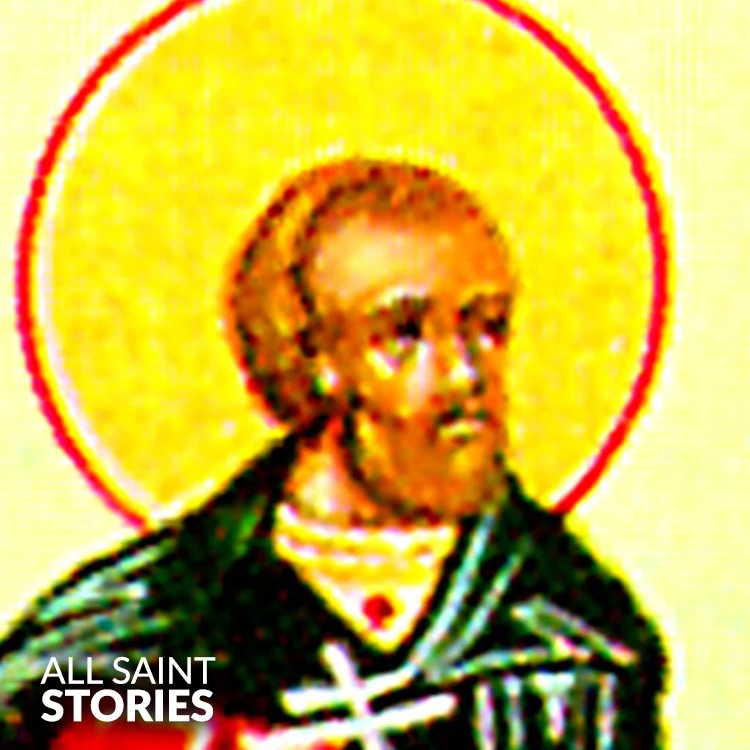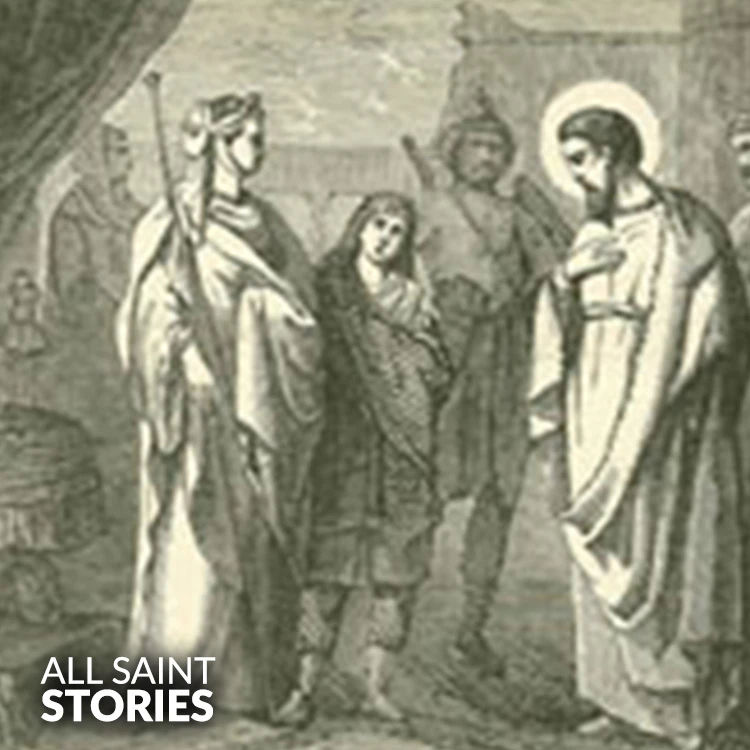St. Aedesius, faithful servant of God, You endured great trials for your faith and stood firm in your belief. Intercede for us, that we may have courage in times of difficulty, And remain steadfast in our devotion to Christ. Guide us with your wisdom, And help us to live with compassion, integrity, and love. Through your prayers, may we grow closer to God each day. Amen.
ST. AEDESIUS OF ALEXANDRIA
ST. AEDESIUS OF ALEXANDRIA

St. Aedesius of Alexandria was an early Christian martyr who boldly defended persecuted Christians and was executed for his fearless witness during the Diocletian persecution in the early 4th century.
St. Aedesius of Alexandria lived during the brutal persecution of Christians under Emperor Diocletian and his successors in the early 4th century. Born around 280 AD, likely in Cappadocia or possibly in Alexandria, Egypt, he came from a well-educated background and was the brother of another prominent martyr, St. Apphian (Amphianus).
Both Aedesius and his brother studied in Beirut, where they were deeply influenced by Christian teachings and eventually converted to the faith. Their commitment to Christianity led them to renounce their pagan upbringing, and they became known for their zeal and boldness in preaching the Gospel.
Aedesius’s brother Apphian was arrested and martyred in Caesarea Maritima after publicly denouncing sacrifices to pagan gods. Inspired and emboldened by his brother's death, Aedesius continued his public witness for Christ. He traveled to Alexandria, a city at the heart of philosophical and religious debates, where Christian persecution was severe under the local Roman authorities.
What distinguishes St. Aedesius is the dramatic nature of his martyrdom. While in Alexandria, he witnessed Christian women—consecrated virgins—being forced into prostitution as a form of punishment. Unable to bear the injustice, Aedesius openly denounced the actions of the Roman authorities, particularly the governor who had ordered such treatment. He struck the governor in public and rebuked him for his cruelty and impiety. This act of defiance led to his immediate arrest.
Aedesius was subjected to harsh torture, beaten severely, and ultimately drowned for his faith on April 8, around the year 306 AD. His death mirrored the early Christian commitment to both truth and justice, even in the face of horrific violence. Aedesius and his brother became symbols of righteous protest against inhumanity.
Their stories were preserved by early Church historians, including Eusebius of Caesarea, who praised the brothers for their boldness and unwavering devotion. Over time, their memory became especially revered in the Eastern Church, though they were also remembered in the West.
St. Aedesius stands as a model of moral courage, willing to sacrifice his life not only for his faith but in defense of those who could not defend themselves. His witness reminds modern believers of the importance of speaking out against injustice and protecting the dignity of every human being.
Video Not Found
The information on this website is compiled from various trusted sources. While we aim for accuracy, some details may be incomplete or contain discrepancies.
If you notice any errors or have additional information about this saint, please use the form on the left to share your suggestions. Your input helps us improve and maintain reliable content for everyone.
All submissions are reviewed carefully, and your personal details will remain confidential. Thank you for contributing to the accuracy and value of this resource.
Credits & Acknowledgments
- Anudina Visudhar (Malayalam) – Life of Saints for Everyday
by Msgr. Thomas Moothedan, M.A., D.D. - Saint Companions for Each Day
by A. J. M. Mausolfe & J. K. Mausolfe - US Catholic (Faith in Real Life) – Informational articles
- Wikipedia – General reference content and images
- Anastpaul.com – Saint images and reflections
- Pravachaka Sabdam (Malayalam) – Saint-related content and insights
We sincerely thank these authors and platforms for their valuable contributions. If we have unintentionally missed any attribution, please notify us, and we will make the correction promptly.
If you have any suggestion about ST. AEDESIUS OF ALEXANDRIA
Your suggestion will help improve the information about this saint. Your details will not be disclosed anywhere.
© 2026 Copyright @ www.allsaintstories.com



 English
English
 Italian
Italian
 French
French
 Spanish
Spanish
 Malayalam
Malayalam
 Russian
Russian
 Korean
Korean
 Sinhala
Sinhala
 Japanese
Japanese
 Arabic
Arabic
 Portuguese
Portuguese
 Bantu
Bantu
 Greek
Greek
 German
German
 Dutch
Dutch
 Filipino
Filipino